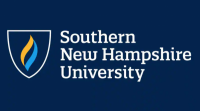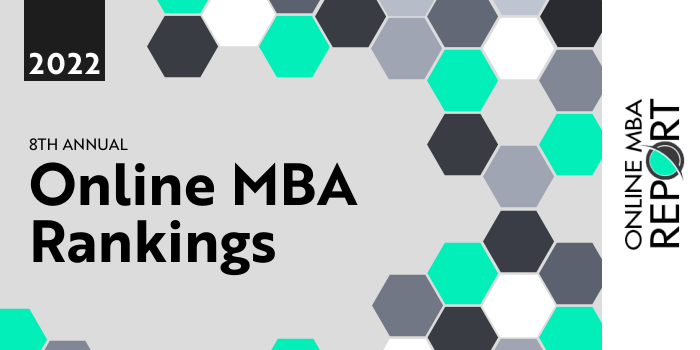
Our 2022 list of the Top 50 Public Online MBA Programs in the US. For an explanation of ranking criteria, click here.
| Ranking | School | State | % Considered |
|---|---|---|---|
| 1 | Indiana University, Bloomington | Indiana | 1% |
| 2 | University of North Carolina at Chapel Hill | North Carolina | 2% |
| 3 | Arizona State University | Arizona | 2% |
| 4 | University of Texas at Dallas | Texas | 3% |
| 5 | University of Florida | Florida | 3% |
| 6 | University of Michigan | Michigan | 4% |
| 7 | University of Washington | Washington | 4% |
| 8 | Pennsylvania State University | Pennsylvania | 5% |
| 9 | University of Arizona | Arizona | 5% |
| 10 | Washington State University | Washington | 6% |
| 11 | University of Maryland | Maryland | 6% |
| 12 | University of Illinois at Urbana-Champaign | Illinois | 7% |
| 13 | Auburn University | Alabama | 8% |
| 14 | North Carolina State University | North Carolina | 8% |
| 15 | University of Utah | Utah | 9% |
| 16 | University of Massachusetts, Amherst | Massachusetts | 9% |
| 17 | University of Nebraska | Nebraska | 10% |
| 18 | Temple University | Pennsylvania | 10% |
| 19 | University of Wisconsin MBA Consortium | Wisconsin | 15% |
| 20 | University of Kansas | Kansas | 15% |
| 21 | Clemson University | South Carolina | 15% |
| 22 | University of Cincinnati | Ohio | 15% |
| 23 | University of California, Davis | California | 15% |
| 24 | Florida State University | Florida | 15% |
| 25 | Rutgers University | New Jersey | 15% |
| 26 | Colorado State University | Colorado | 15% |
| 27 | Ball State University | Indiana | 15% |
| 28 | Oklahoma State University | Oklahoma | 20% |
| 29 | Oregon State University | Oregon | 20% |
| 30 | University of Pittsburgh | Pennsylvania | 20% |
| 31 | The College of William & Mary | Virginia | 20% |
| 32 | Kansas State University | Kansas | 20% |
| 33 | Florida International University | Florida | 20% |
| 34 | Louisiana State University | Louisiana | 20% |
| 35 | Ohio University | Ohio | 20% |
| 36 | Portland State University | Oregon | 20% |
| 37 | University of Massachusetts, Lowell | Massachusetts | 25% |
| 38 | George Mason University | Virginia | 25% |
| 39 | University of Mississippi | Mississippi | 25% |
| 40 | West Virginia University | West Virginia | 25% |
| 41 | Mississippi State University | Mississippi | 25% |
| 42 | University of Memphis | Tennessee | 25% |
| 43 | Kent State University | Ohio | 25% |
| 44 | Texas A&M University, Central Texas | Texas | 25% |
| 45 | University of South Florida | Florida | 25% |
| 46 | Arkansas State University | Arkansas | 25% |
| 47 | University of Tennessee, Chattanooga | Tennessee | 30% |
| 48 | West Texas A&M University | Texas | 30% |
| 49 | James Madison University | Virginia | 30% |
| 50 | Boise State University | Idaho | 30% |
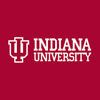
Kelley School of Business (Kelley) at Indiana University Bloomington (IU Bloomington or IUB) is accredited by the Association to Advance Collegiate Schools of Business (AACSB International). Established in 1920 as the School of Commerce and Finance, Kelley opened with just 70 students. Today, the school serves nearly 15,000 students across 30 programs in Bloomington, Indianapolis, and online.
The Kelley Direct Online MBA attracts students from all 50 states and 29 countries. Kelley students have at least nine years of professional experience and nearly 65% report receiving a promotion while still enrolled in the Online MBA Program.
Kelly Online MBA students have the opportunity to customize the curriculum to fit their goals. The program provides a business fundamentals core, seven major options, and 50% electives. Course examples include Managing Accounting Information for Decision-Making, Topics in Directed Business Interaction, Leading Organization, Strategic Management, Digital Technology and Innovation, and Integrative Case Experience. Majors include Business Analytics, Digital Technology Management, Entrepreneurship and Corporate Innovation, Finance, Marketing, Strategy and Leadership, and Supply Chain and Operations.
Other program benefits include globally focused online elective courses, hands-on experience, Domestic Immersion courses such as the Washington Campus program, career development courses by Kelley’s Graduate Career Services, live classes and in-person sessions (at the beginning and end of the program), and participation in AGILE (Accelerating Global Immersion Leadership Education).
Offered each quarter, AGILE allows students to gain international business experience while pursuing their online degree. Students will have opportunities to travel to places such as Johannesburg, South Africa; Yangon, Myanmar, Southeast Asia; Gaborone, Botswana; Havana/Vinales, Cuba, Sao Paolo, Brazil; New Delhi, India; and Beijing, China.
Kelley Online MBA students also have the option to complete an internship with major corporations such as Amazon, PwC, Ecolab, 3M, Nestle, Deloitte Consulting, Johnson & Johnson, Owens Corning, and Procter & Gamble. In addition to these companies, some of the top hiring companies for Kelley graduates include Google, Accenture, JP Morgan Chase, IU Health, Bank of America Merrill Lynch, Grant Thornton, and KPMG. More than 300 companies recruited Kelley students in 2017-2018 alone.
Indiana University Bloomington is accredited by The Higher Learning Commission (HLC). Founded in 1820, IUB is the flagship campus of Indiana University’s seven campuses and two regional centers, which serve 91,000 students. IU Bloomington serves nearly half of these students (45,328) making it the largest campus in the IU System. More than 300 programs are offered across 16 degree-granting colleges and schools, plus the Hutton Honors College.

Kenan-Flagler Business School at University of North Carolina at Chapel Hill (UNC-Chapel Hill) has been educating business students for more than 100 years. Serving nearly 3,500 students, the school has five MBA programs, including a STEM-designated Online MBA known as the MBA@UNC. Consisting of 66 credit hours, this program allows students to tailor their studies, with 40 ways to earn elective credit in five concentration areas including Data Analytics and Decision Making, Entrepreneurship, Strategy and Consulting, Finance, and Marketing.
Coursework for the MBA@UNC Program is delivered via video content, lectures, and roundtable discussions that are accessible 24/7 from the online platform. Course and elective examples include The Business of Energy Consulting, Strategy of Project Finance, Leading in the Middle: Organization and Culture, Sustainability Reporting & Certification, Innovation and Entrepreneurship in Developing Economies, Python for Business Analytics, Technology Strategy and Business Innovation, and Global Brand Strategy.
MBA@UNC students will have opportunities to interact with professors and peers during on-campus summits and live online class sessions. Experiential learning programs provide additional opportunities to interact with professors and peers, and with corporations around the world through travel to major business centers such as London, Johannesburg, Singapore, and Istanbul.
Other experiential learning programs include Student Teams Achieving Results (STAR) and Doing Business In (DBI). STAR students will work in teams, with one student serving as Project manager, on projects for real companies. Just a few STAR partners include Coca-Cola, NASCAR, UnitedHealthcare, Lenovo, KIND, and Procter & Gamble. DBI provides the opportunity to study abroad at a UNC Kenan-Flagler MBA exchange partner school. DBI students will spend one to three weeks exploring how business is conducted in a global setting.
Examples of DBI topics and locations include: Sustainability in Copenhagen, Denmark; Innovation Week in Vienna, Austria; Digital Marketing in Helsinki, Finland; General Management in Sao Paulo, Brazil; Entrepreneurship & Innovation in Tel Aviv, Israel; and Doing Business in China at Peking University.
The MBA@UNC Program can be completed in 21 months through the Accelerated Track, in 24 months (Standard Track) or 27 months (extended Track). Note that the program can also be completed in as few as 18 months or as many as 36, depending on the student’s schedule. However, on average, students will complete the program in 24 months. The MBA@UNC Program is AACSB-accredited.
University of North Carolina at Chapel Hill is accredited by the Southern Association of Colleges and Schools Commission on Colleges (SACSCOC). Founded in 1789, UNC-Chapel Hill welcomed its first students in 1795, becoming the first and only public university in the U.S. to award degrees in the 18th century. Today, UNC-Chapel Hill serves more than 31,500 students enrolled in over 250 bachelor’s, master’s, and PhD programs across 14 colleges and schools.
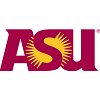
W.P. Carey School of Business at Arizona State University (ASU) has several MBA Programs, including an Online MBA that was one of the first fully online MBA programs offered by an AACSB-accredited business school. With just one required in-person meeting at the beginning of the program, the W.P. Carey Online MBA consists of 17 courses (49 credit hours) that focus on leadership skills and personal performance.
Courses are five weeks each and students may take one class at a time. All courses culminate with final exams or final projects. Course examples include Decisions, Market Structure, and Games: Managerial Economics, Leading People, Teams and Organization: Organizational Theory, Create and Deliver Customer Value: Marketing Management, Finance: The Art of Managing Resources, and Ethical Issues for Managers.
Elective options and concentrations allow students to focus in one area or develop skills in multiple areas. Elective examples include Advanced Corporate Finance, Global Business Environment, Project Management, Sustainability & Social Responsibility, and Management of Technology and Innovation. Optional concentrations include Business Data Analytics, Leadership, Supply Chain Management, Marketing, International Business, Finance, and Entrepreneurship.
Other program features include small class sizes, case-based team projects, an inclusive online environment, and the option to earn two degrees in less time and at a lower cost. Dual online degree options include the MBA/MSE in Electrical Engineering, the MBA/Master of Legal Studies, and the MBA/MS in Industrial Engineering.
Graduates of the MBA Programs at Arizona State University are routinely hired by major companies such as Amazon, Bank of America, Walmart, Apple, Dell, Intel, American Express, CVS Health, Nestle, Capital One Financial Corporation, FedEx, Honeywell, Johnson & Johnson, the United States Postal Service, Bayer, Northrop Grumman, Michelin North America, Kimberly-Clark Corporation, and many others.
Arizona State University is accredited by The Higher Learning Commission (HLC). The school opened on Feb. 8, 1886, nearly 30 years before Arizona was granted statehood, as the Territorial Normal School (TNS), Arizona’s first higher education institution. On the first day of class, the TNS welcomed 33 students to a four-classroom building in Tempe. Today, ASU serves 135,730 students enrolled in more than 800 degree programs across four campuses and ASU Online. Programs at Arizona State University are housed in 16 academic colleges and schools.
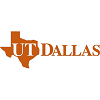
University of Texas at Dallas (UT Dallas) houses Naveen Jindal School of Management (JSOM). Serving 9,365 students, JSOM is the largest of UT Dallas’ eight schools. Within JSOM is an AACSB-accredited MBA Program with multiple delivery options. For students seeking an online program, JSOM has an Online Professional MBA (PMBA) Program that can be completed in as few as 16 months or up to 72 months. Students in the program have access to 15 concentrations, 59 elective course options, and four specializations through the Academic Certificate Program.
Students also have access to 12 MS/MBA combinations, including eight STEM-designated options, and an MD/MBA Program in partnership with the University of Texas Southwestern Medical Center (UT Southwestern). Examples of MS/MBA combinations include Energy Management MS (STEM)/MBA, Management Science MS (STEM)/MBA, Healthcare Leadership and Management MS/MBA, and Information Technology and Management MS (STEM)/MBA. Students in STEM-designated programs are eligible for three years of (OPT) Optional Practical Training after graduation.
Online PMBA concentrations require 12 credit hours and include options such as Energy Management, Innovation & Entrepreneurship, International Management, Leadership in Organizations, Strategic Management, and Systems Engineering & Management. Certificate options include Project Management, Executive and Professional Coaching, Transformational Leadership, and Organizational Consulting. Students may select one or multiple concentrations.
Although the UT Dallas Online PMBA does not require campus visits (coursework can be completed entirely online) all students are encouraged to participate in the school's International Study Program. Students may choose from semester-long, summer, or 10-day experiences in Asia, Europe, South America, the Middle East, and Central America, among others.
Graduates of the MBA Programs at UT Dallas have been hired at major companies such as Amazon, Dell J.P. Morgan, FedEx, Nestle, Hewlett Packard, Intel, SpaceX, Deloitte Consulting, Texas Instruments, Toyota, Proctor & Gamble, Verizon, Fossil, and Wells Fargo.
The University of Texas at Dallas is accredited by the Southern Association of Colleges and Schools Commission on Colleges (SACSCOC). The school dates back to the 1960s when Texas Instruments owners Cecil Green, Erik Jonsson, and Eugene McDermott established the Graduate Research Center of the Southwest. Today, UTD is one of the nation’s top public research universities. Serving nearly 29,000 students, UTD is also one of the largest public universities in Texas. More than 140 academic degrees are available, including top-ranked programs in the Arts. Degree programs at University of Texas at Dallas are housed across eight schools.
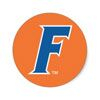
Warrington College of Business at University of Florida (UF) became one of the first schools to offer a fully accredited (AACSB), 100% online MBA program in 1999. Two options are available: Accelerated 16-month and the Traditional 24-month. The Accelerated Online MBA is designed for students who have earned an undergraduate degree in business within seven years before applying for the program. This option is also open to students in UF’s Outreach Engineering Management (OEM). Both options require at least two years of full-time, professional work experience, and there are no required campus visits.
Courses for the UF Warrington Online MBA are organized across four Modules and students have the option to expand their studies through career-focused concentrations such as Marketing, Business Analytics, Human Capital, Strategy, and Supply Chain. Concentration options are offered by the Hough Graduate School of Business.
The UF Warrington Online MBA provides additional opportunities to specialize in different areas through the required nine elective courses. In the first year of the Traditional program, students will take three elective courses. In the second year, students will complete six elective courses. Note that available elective courses will vary.
Examples of required business classes and core courses for the UF Warrington Online MBA include Strategic Management; Law, Ethics, and Organizations; Asset Valuation, Risk & Return; Production & Operations Management; Capital Structure & Risk Management; Professional Communication; Developing leadership Skills; and Global Macro Economics.
While the Online MBA at University of Florida may be completed entirely online, students are encouraged to take advantage of the Global Immersion Experience (GIE), which takes place during the Fall or Spring break in year two of the program. The two-credit GIE course meets in person and online and includes a seven- to 10-day experience in China, United Arab Emirates (UAE), Argentina, Ireland, Brazil, and others destinations. During the GIE, students will meet with business executives from various industries, observe how international companies work, and visit cultural monuments such as the Great Wall of China and the mosques of UAE.
In 2021, 100% of students in the University of Florida Warrington MBA Programs received employment offers within three months of graduation. 91.3% accepted offers by graduation, and 97.8% accepted offers within three months of graduation. Graduates were recruited by 33 companies in the Financial Services, Consumer Packaged Goods, Technology, Manufacturing, and Retail sectors, among others. Top roles included Consulting, Marketing/Sales, Human Capital, and Finance. Top employers included Microsoft, Home Depot, Procter & Gamble, 3M, and Ryder.
University of Florida is accredited by the Southern Association of Colleges and Schools Commission on Colleges (SACSCOC). Founded in 1858 as Gainesville Academy, the school opened with 102 students. Today, UF is a top-10 public, comprehensive, land-grant, research university that serves nearly 58,000 students enrolled in more than 300 programs across 14 colleges and schools.

University of Michigan-Ann Arbor (U-M Ann Arbor) houses the Stephen M. Ross School of Business (Michigan Ross), which has a part-time, AACSB-accredited MBA Program that can be completed primarily online. Three residencies worth nine credit hours (total) are required and options are available at the beginning of each term, Thursday through mid-Sunday at the Michigan Ross campus. Residencies may also take place in Berlin, Germany or other major cities around the world. Examples of available residencies include Global Business Strategy (International), Business Innovation (on campus), and Business Transformation (on campus).
Other Michigan Ross Online MBA features include additional opportunities to travel abroad to places such as China and Israel; live, interactive classes + self-guided modules; learning business by doing business through REAL (Ross Experiences in Action-Learning); the semester-long Multidisciplinary Action Projects (MAP) course, which allows students to work in teams to solve a problem for a real-world company or organization; and the opportunity to customize a specialization through 18 required credit hours of electives.
Popular electives include Leading Diverse Teams and Organizations, Communicating in a Virtual World, Healthcare Markets and Public Policies, LBLE (Living Business Leadership Experience), Strategies for Growth, and Managing the OMBA Fund. LBLE provides the opportunity to establish and manage a team within an operational business unit, working directly with executives of the sponsoring company, and learning under the supervision of faculty advisors.
Graduates of the Ross MBA Programs at University of Michigan-Ann Arbor enjoy a 98% recruitment rate within three months of graduation. Top employers of Michigan Ross MBA graduates include Microsoft, Amazon, Goldman Sachs, McKinsey & Company, Google, PepsiCo, and Boston Consulting Group (BCG).
University of Michigan-Ann Arbor is accredited by The Higher Learning Commission (HLC). Established in 1817 in Detroit, Michigan, U-M Ann Arbor is one of the first public universities in the nation. On the first day of classes beginning in Fall 2021, the school welcomed more than 50,000 students, including its largest-ever class of first-year students. U-M Ann Arbor is the largest of the three U-M Campuses (Ann Arbor, Dearborn, Flint). The school provides more than 200 degree programs in 18 colleges and schools. Schools.
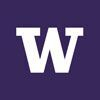
The Michael G. Foster School of Business at University of Washington (UW Foster) has a Hybrid MBA Program that allows students to complete 95% of the program online and 5% on campus. The Hybrid MBA is the first program of its kind at Foster.
The online component for the program consists of a combination of guided independent work supplemented with virtual teamwork, Foster Live sessions (60-90 minute interactive sessions with Foster faculty and Hybrid classmates for weekly class), and optional Thursday evening online review sessions. The in-person component consists of a mandatory three- to five-day intensive, on-campus immersion at the beginning of each quarter.
The curriculum for this AACSB-accredited program consists of 50 credits of core courses and 12 credits of electives that are exclusive to the Foster Hybrid MBA program. Elective examples include International Study Tour, Successful Negotiations, Digital Strategies & Systems, Product Management, Leading Organizational Change, Sustainable Design of Global Supply Chains, Marketing Analytics, Foundations of Entrepreneurship, and Behavioral Finance.
Other Foster Hybrid MBA features include hands-on case analysis, support through workshops, training, and coaching sessions, and the opportunity to attend networking events with employers on the UW campus.
Graduates of the Foster MBA Programs at University of Washington work in areas such as marketing and sales, consulting, finance and accounting, operations and logistics, and general management. Recent hiring companies for Foster MBA graduates include Deloitte, Amazon, Nike, PwC, Starbucks, Accenture, Walmart, Cisco, Goldman Sachs, Zillow, BMO, Apple, Ecolab, Liberty Mutual, Abbott Laboratories, Dell, eBay, and Verizon.
University of Washington (UW) is accredited by the Northwest Commission on Colleges and Universities (NWCCU) and is a member of the Association of American Universities (AAU). Founded in 1861 as the Territorial University of Washington, UW is one of the oldest universities on the West Coast. The school serves nearly 55,000 students across three campuses—UW Seattle, UW Bothell, and UW Tacoma. More than 550 programs are available across all UW campuses and online. Programs are housed in 15 academic colleges and schools.

Smeal College of Business at Pennsylvania State University (Penn State or PSU) offers an MBA Program that can be completed online. Delivered through Penn State World Campus, the program provides access to Smeal’s more than 1300 internship and co-op opportunities annually, and over 300 career fairs and corporate recruiting events each year.
The AACSB-accredited Online MBA Program at Penn State also provides access to 27 concentrations including options such as Additive Manufacturing and Design, Business Sustainability Strategy, Cybersecurity Intelligence Leadership, Engineering Leadership and Innovation Management, Health Care Business, Homeland Security, International Affairs, Negotiation and Influence, Strategic Leadership, and Talent Diversity Leadership. The program runs on the Penn State semester system, so in addition to a declaring a concentration, students can take advantage of other Penn State online graduate degree and certificate courses and programs.
The Penn State Online MBA Program consists of 48 credit hours, including 39 core credits and nine credits of concentration work, delivered in an asynchronous format. Every course includes group projects to encourage peer interaction and build a learning community among students. Course projects simulate real-world business environments, where individuals frequently work in teams to solve problems. Course examples for the program include Managing in a Digital Economy, Corporate innovation and Entrepreneurship, Ethical and Responsible Business Leadership, Data Analysis for Decision Making, Managing and Leading People in Organizations, and Marketing in a Global Environment.
While coursework for the Penn State Online MBA may be completed entirely online, students will attend a three-day Orientation Residency at the start of the program. The residency provides the opportunity for students to meet program faculty and peers while completing Team Performance—the first core course in the program. Students will also attend other sessions during the residency that focus on online technology and professional development.
As part of the suite of Smeal MBA Programs, graduates of Online MBA Program enjoy a 94% placement rate within three months of graduation. Penn State MBAs have been recruited by companies such as Amazon, ExxonMobil, Dell, Deloitte consulting, Williams-Sonoma Inc., NBC Sports Group, Chrysler, Tyco International, The Walt Disney Company, Bristol-Myers Squibb, Michelin North America, Capital One Financial Corporation, DuPont, IBM, Apple, Procter & Gamble, Ford Motor Company, AstraZeneca Pharmaceuticals, Johnson & Johnson, and The Dow Chemical Company.
Pennsylvania State University is accredited by the Middle States Commission on Higher Education (MSCHE). Founded in 1855 as the Farmers’ High School, Penn State is Pennsylvania’s only land-grant university. The school serves close to 89,000 students enrolled in more than 575 undergraduate majors, graduate programs, and professional programs across 20 campuses, sixteen academic colleges, and several additional schools. With more than 17,000 faculty and staff, Pennsylvania State University is one of the state’s largest employers.
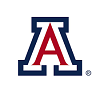
Eller College of Management at University of Arizona (UA) is one of the 20 colleges at University of Arizona. This AACSB-accredited college serves around 6,600 students enrolled in 26 academic programs, including a flexible 100% Online MBA (OMBA). Known as the Eller OMBA, the program provides 24/7 access to coursework and assignments, allowing students to complete the program on their own time.
With six starts per year (every eight weeks), the Eller OMBA has six concentrations including Entrepreneurship, Health Care Management, Marketing, Management and Organizations, Privacy and Security, and Finance. The program requires 45 credits, including 28 core units and 17 elective units. Courses are completed across two sessions per semester. In general, each session offers two core courses and a minimum of two electives.
Students in the Eller Online MBA can decide how many courses to take at a time, so they may complete the program in as few as 14 months or up to 48. Course examples for the program include Marketing of Innovations, Communication Management, Leadership in Organizations, Strategic Management of Information Systems, Business Strategy, Managing Ethics in Organizations, and Applied Business Statistics.
For students who would like to enhance their MBA experience, Eller provides the opportunity to participate in a Global Experience with Full-time or Evening MBA students. Experiences take place in business environments from Brazil and Chile to Singapore.
Graduates of the Eller OMBA Program at University of Arizona enjoy an 86% employment rate within 90 days of graduation. Top employer’s include Microsoft, Procter & Gamble, Intel, T-Mobile, Becton, Dickinson & Co. (BD), American Express, Gore, and Republic Services.
The University of Arizona has been accredited by The Higher Learning Commission (HLC) since 1917. The school was established in 1885 before Arizona became a state, making it the first university in the Territory of Arizona or “Arizona Territory.” University of Arizona’s first graduating class in 1895 consisted of just two women and one male. Today, UA serves close to 49,500 students enrolled in 300 degree programs across 20 colleges, 23 schools and four campuses.
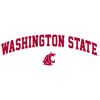
Carson College of Business at Washington State University (WSU) has an AACSB-accredited Online MBA Program with four concentration options and a General Track. Students will receive a Graduate Certificate upon completion of any concentration. Options include International Business, Finance, Hospitality Business Management, and Marketing.
Consisting of 36 credit hours for students with a bachelor’s degree, the Carson Online MBA includes an international field study option. Students recently traveled to Prague where they learned from local professors and experts, met classmates in person, and networked with business professionals. The experience covered a wide range of topics specific to Prague along with tours of cultural landmarks.
The Carson Online MBA Program may be completed in as few as 22-29 months and the GMAT is not required for qualified applicants. Some of the top hiring companies for WSU Carson MBA graduates include Apple, Goldman Sachs, Amazon, and Google. Other companies that have hired WSU Carson graduates include Intel, Boeing, Marriott, The Vanguard Group, The Ritz-Carlton, Dubai, Hitachi Data Systems, MGM Resorts International- Bellagio Resort Las Vegas, Silver Creek Capital Management, Bank of America, Hyatt, Nordstrom, and Marriott International, Inc.
Washington State University WSU is accredited by the Northwest Commission on Colleges and Universities (NWCCU). Established in 1890, WSU began as Washington State Agricultural College and School of Sciences. In 1905, the name changed to State College of Washington, and finally to Washington State University in 1959. The school, which serves 19,900 students from 50 states and 98 countries, offers nearly 430 majors, minors, specializations, professional programs, and graduate degrees across 11 colleges.
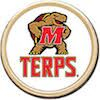
University of Maryland (UMD) houses the Robert H. Smith School of Business (Smith School or Maryland Smith). Established in 1920, the Smith School is one of the 12 colleges and schools at UMD, with notable alumni such as Richard Dickson—President/COO of Mattel, Carly Fiorina—former CEO of Hewlett-Packard, and Roy Schwartz—Axios Co-founder.
The Smith School at UMD has an AACSB-accredited MBA Program with Full-time, Flex, Executive, and Online options. The Online MBA attracts professionals with an average eight years of work experience in areas such as science, government, engineering, and business. Students in this AACSB-accredited program has five specializations including Accounting, Finance, Information Systems & Business Analytics, Marketing, and Supply Chain Management. A General Track is also available.
The Smith School Online MBA consists of 54 total credits completed over six 14-week terms. Course examples for the program include The Global Economic Environment, Entrepreneurship, Corporate Venturing, Sustainability: Economics and Strategy, Fraud Examination, Detection, and Deterrence in the Business Environment, Corporate Venturing, Data Mining and Predictive Analytics, Global Trade Logistics, Social Media and Web Analytics, Managing Digital Businesses and Platform, and Innovative Solutions to Supply Chain Challenges.
The Smith Online MBA is largely asynchronous, allowing students to continue to meet personal and professional obligations for the duration of the program. Other features include small class sizes, experiential learning opportunities, workshops, virtual career-coaching, mock interviews, leadership assessments, career development, networking opportunities, optional GMAT/GRE scores, and access to an online recruiting system and automated job search system.
The Maryland Smith Online MBA may be completed in as few as 24 months, with just two three-day required campus-based residencies worth two credits. Residencies take place at the beginning (Opening Residency) and end (Capstone Residency) of the program.
Graduates of the MBA Programs at University of Maryland are employed in industries such as Government/Civil Service, Healthcare, Investment Banking/Brokerage/Securities/Financial Services, Information Technology, Automotive/Transportation, Consulting, Educational Services, Construction, Electronic/Devices, Entertainment/Media, and Hospitality.
The University of Maryland, College Park is accredited by the Middle States Commission on Higher Education (MSCHE). Founded in 1856, UMD College Park is the flagship campus of the University System of Maryland. The original land-grant institution in the state and one of only 62 members of the Association of American Universities, University of Maryland serves 41,200+ students enrolled in more than 300 undergraduate majors, master’s degrees, and doctoral programs.
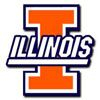
Gies College of Business (GCB or Gies) at University of Illinois at Urbana-Champaign (UIUC or Illinois) officially formed in 1915. The College serves more than 6,000 business students each year, with half enrolled in graduate programs. Among GCB’s advanced degree programs is a fully online MBA known as the iMBA. This program attracts more than 3,300 applicants each year, with an average 10 years of work experience. Serving just over 5,400 students in 2021, the UIUC iMBA program has a 61% promotion or job offer rate, and an average 22% pay increase before graduation. Most iMBA students complete the program in less than 2.5 years.
The iMBA is divided into several specializations including Global Challenges in Mergers and Acquisitions, Business, Entrepreneurship and Strategic Innovation, Digital Marketing, and Business Analytics. Elective options are available and include courses such as Infonomics, Project Management, and Financial Statement Analysis for MBAs. Students in the iMBA Program will also complete three capstones (group-based projects), including two specialization capstones and one program capstone, each culminating with a final case presentation.
Learning for the iMBA Program takes place through Coursera and University of Illinois at Urbana-Champaign. The part of the curriculum delivered through the Coursera platform is on demand, so students can complete it at their own pace. Other program features include hands-on faculty, interactive classes and projects, and weekly live class sessions, covering multiple time zones across the world. Students in the UIUC Gies iMBA Program live and work in more than 50 different countries.
Graduates of the Gies College of Business at University of Illinois at Urbana-Champaign are routinely recruited by Google, Amazon, Microsoft, and Deloitte. UIUC graduates have also been hired by Ernst & Young, JP Morgan Chase, Others include Tesla, Facebook, IBM Caterpillar, Humana, Archer-Daniels-Midland Company (ADM), Johnson & Johnson, Intel, Kroger, Liberty Mutual, Lockheed Martin, Caterpillar, Bank of America, Oracle, PepsiCo, Cisco Systems, Dell, USAA, Walmart, Goldman Sachs Group, Pfizer, Tesla, Comcast, Verizon, and Wells Fargo, among others.
University of Illinois at Urbana-Champaign is accredited by The Higher Learning Commission (HLC). One of the original 37 public land-grant institutions created by the Morrill Act in 1862, UIUC was founded as Illinois Industrial University in 1867, making it the oldest institution in the University of Illinois System. Serving 56,299, with a record-breaking freshman class of 8,303 for the 2121-2022 academic year, UIUC is also the largest campus in the System. University of Illinois at Urbana-Champaign offers more than 250 undergraduate, graduate, and professional programs across 16 colleges and schools, and The Graduate College.
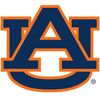
Raymond J. Harbert College of Business at Auburn University serves more than 6,500 undergraduate, graduate, and doctoral students from 37 countries. The College has four MBA options: the On-Campus MBA, Online MBA, Executive MBA and Physicians Executive MBA. The Harbert College Online MBA consists of an optional three-day orientation at the beginning of the program and a three-day on campus residency on the Wednesday, Thursday, and Friday before graduation. Coursework for the program is delivered 100% online through CANVAS—Auburn’s distance learning platform.
Auburn Online MBA students use CANVAS to access course materials, hold discussions with professors and classmates, view lectures, work with team members on group assignments, ask questions, and submit homework. Learning formats include video capture of live full-time courses where students have a “seat” in the classroom or studio produced for online only delivery. Online students will view the same lectures, take the same tests, and communicate with the same professors as on-campus students, and can live-stream classes or choose to watch at the time most convenient for them.
Courses are taken at the student’s own pace, with most online participants taking one or two classes each semester. The curriculum includes a mix of core business classes and business electives and the final semester includes the Capstone Course, where groups of MBA students provide consultation to a number of real businesses on various topics.
In addition to optional concentrations in Business Analytics, Information Systems, or Finance, this AACSB-accredited program offers dual degrees (MBA/MS) in Finance, Information Systems, and Industrial and Systems Engineering, and graduate certificates that complement the Online MBA. Certificates range from nine to 24 credit hours. Options include Accountancy, Business Analytics, Cybersecurity Management, Management Information Systems, Supply Chain Management Innovation, Supply Chain Operations, and Supply Chain Planning.
Harbert College Online MBA students can complete this 36 credit hour program in 31 months or they have the option to take up to six years to finish.
Auburn University welcomes more than 400 corporate partners to campus each year and 82% of students are employed in their field or pursuing additional education within six months of graduation. Auburn University alumni have gone on to become CEOs, entrepreneurs, astronauts, actors, Supreme Court justices, and even governors. Just a few famous Auburn alumni include Apple CEO Tim Cook , Oscar-winning actress Octavia Spencer, Georgia Supreme Court Justice Harold Melton, former NASA astronaut Jim Voss, Wikipedia co-founder Jimmy Wales, and Governor of Alabama Kay Ivey.
Auburn University is accredited by the Southern Association of Colleges and Schools Commission on Colleges (SACSCOC). Chartered in 1856 as East Alabama Male College (a Methodist Institution) and the first land-grant college in the South, the school launched in 1859 with 80 students and a faculty of six. Today, nearly 5,500 faculty and staff serve a diverse population of 31,500 students enrolled in more than 150 undergraduate majors and 160+ graduate programs across 15 colleges and schools.
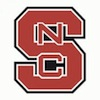
Poole College of Management at North Carolina State University (NC State) was established in 1992. Serving more than 3,500 students Poole is fully accredited by AACSB. For students seeking a flexible MBA program, Poole College of Management has a Professional Online MBA that requires just two three-day residencies at NC State’s main campus in Raleigh. Otherwise all coursework for the program, known as the Jenkins MBA, may be completed entirely online. Active duty military personnel may waive the residency requirement and replace it with elective courses. Both accelerated and flexible program options are available, allowing students to complete the program in as few as 21 months or up to six years. Start times are in the fall or spring semester.
Jenkins MBA students will connect with peers, professors, and guest speakers, through online presentations, videos, and podcasts. They will have opportunities to work in virtual teams on group projects and meet with professors outside of class during office hours through online chat, email, a virtual collaborative space, and by phone.
Consisting of 40 credit hours, the Jenkins Online MBA provides access to courses through WolfWare—NC State’s online learning management system, which utilizes tools such as Zoom, streaming video files, Moodle, and discussion boards. Jenkins online students receive technical support through the NC State DELTA Department and they have access to the Jenkins Career Management Center.
Course examples for the program include Ethical Thinking for Managers, Creating Value in Organizations, Marketing Management and Strategy, Data Driven Managerial Decisions, Principles of Operations & Supply Chain Management, and Leading People. Jenkins MBA students may specialize in an area through 14 required elective credits. Elective examples include Innovation and the Internet of Things Marketplace, Technology Entrepreneurship and Commercialization, Digital Marketing, Experience Innovation and Strategic Design, Data Engineering, Management and Warehousing, Product Design and Development, and Operations Analysis.
In addition to internship opportunities and required practicums with corporate partners, the Jenkins Online MBA encourages students to participate in the Study Abroad Program, which includes immersive experiences in places such as France, Germany, and the Czech Republic.
Graduates of the Jenkins MBA Program at North Carolina State University enjoy a 97% employment rate within three months of graduation. Some of the top hiring companies for Jenkins MBA graduates include IBM, Lowe’s, Bank of America, and NetApp. Graduates have also been recruited by companies such as Apple, Chevron, Nestle Purina, Belle and Howell, IBM, American Airlines, First Citizens Bank, Cinemark Holdings, Bayer, and Hanesbrands Inc.
North Carolina State University is accredited by the Southern Association of Colleges and Schools Commission on Colleges (SACSCOC). Established in 1887 as a land-grant institution focusing in agriculture and engineering, the school held its first classes in the fall of 1889 with just 72 students, six faculty members, and one building. Today, NC State has more than 9,000 faculty and staff members that serve 37,555 students, making it the largest of the 16 higher-education institutions in the University of North Carolina System. More than 300 undergraduate majors, master’s degrees, and doctoral programs are offered across 11 colleges, 68 departments, and The Graduate School.
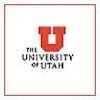
University of Utah (The U) is home to David Eccles School of Business, which provides access to 17 institutes, centers and initiatives, more than 40 undergraduate, specialized master’s, MBA, PhD, minor, and certificate programs, and a network of more than 42,000 alumni worldwide. Among the school’s MBA programs is an AACSB-accredited Online MBA that may be completed entirely online. Content for the program is available 24/7, GMAT/GRE waivers are available, and students can complete the program in 24-46 months.
While the Eccles Online MBA Program is delivered 100% online, students have opportunities to interact with faculty and peers in a weekly live web-conferencing session, and during one three-day on-campus residency. Online forums and multimedia are also utilized and students can select a mixture of online and on-campus classes at any time, if desired.
Consisting of 48 credit hours, the Eccles Online MBA allows students to customize the degree by choosing 15 elective credits from 26 options offered virtually and dozens offered on-campus. Just a few online elective examples include Cloud Computing, Date Mining, Digital Marketing and Analytics, International Management, IT Security, Business Intelligence and Analytics, Data Visualization, Strategic Leadership, Change Management, Venture Capital, Competitive Advantage Through People, Web Based Applications, and the International Trip. Past destinations international destinations include Johannesburg, South Africa; Ho Chi Minh City, Vietnam; Shanghai, China; Seoul, South Korea; Beijing and Tianjin, China; and Buenos Aires, Argentina.
Eccles Online MBA students may specialize in several other areas by adding a graduate certificate. Options include Business Analytics, Operations & Supply Chain Management, and Information Systems.
Around 62% of Eccles Online MBA students report receiving a promotion while in the program, and 15% receive a salary increase before graduating. Corporate partners at University of Utah-Eccles include Goldman Sache, Wells Fargo, Microsoft, L3 Technologies, Celtic Bank, Inflash, and University of Utah Health.
University of Utah has maintained its accreditation through the Northwest Commission on Colleges and Universities (NWCCU) continuously since 1933. Founded in 1850, The U is the oldest state university west of the Missouri River. When it opened in November 1850 as the University of Deseret, the school’s first term was designated “men only.” Today, nearly half of the students at University of Utah are women. With a population of more than 31,000 students, The U is one of the largest universities in the state. The school offers hundreds of programs across 17 colleges and schools and nearly 100 departments.
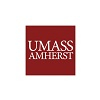
University of Massachusetts-Amherst (UMass Amherst) houses Isenberg School of Management, which opened in 1947 with just 10 faculty members and 15 students. By 1953, the school awarded its first MBA degrees. Today, this AACSB-accredited business school employs more than 250 educators and staff that serve around 5,300 students. The Isenberg Online MBA at UMass Amherst launched in 2001.
The program enrolls around 1,400 professionals averaging 12 years of work experience. While students can complete the program entirely online, student who would like to learn in a hybrid format can enroll in the Online MBA with In-Person Option for face-to-face interaction with peers and professors. Formerly known as the Part-Time MBA, this option is available at the University’s Massachusetts satellite locations in Boston and Shrewsberry. Whichever delivery option students choose, they must complete 45 credit hours of study.
The Isenberg Online MBA has five focus areas including Finance, Marketing, Business Analytics, Healthcare Administration, and Entrepreneurship. Focus areas are nine credit hours and may include courses such as Artificial Intelligence in Business, Value Investing, Corporate Real Estate, Healthcare Quality and Performance Improvement, and Web Analytics for Digital Marketing.
All focus areas allow students to substitute up to three credits of electives with a “flex” designated elective. Flex electives are applicable to all industries and can be applied to all focus areas. Survey Development and Analysis, Negotiations Theory & Practice, Project Management, Data Management for Business Leaders, and Business Intelligence & Analytics are a few examples.
Isenberg School of Management graduates (undergraduate and graduate) enjoy a 95% employment rate (or graduate school) within six months of graduation. Top employers for graduates include PricewaterhouseCoopers (PwC), Citigroup, Ernst & Young, Dell, Grant Thornton, Raytheon, Oracle, Fidelity Investments, Deloitte, Amazon, Techtronic Industries, Bose Corp, KPMG, and TJX Companies Inc.
University of Massachusetts Amherst is accredited by the New England Commission of Higher Education (NECHE). Founded in 1863 as Massachusetts Agricultural College (MAC), the school opened with just 56 students and four faculty members. Today, UMass Amherst employs more than 1,300 faculty members that serve 32,135 students, making it the oldest and largest school in the University of Massachusetts System. More than 90 undergraduate and 120+ graduate program options are available across ten colleges and schools.
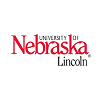
University of Nebraska–Lincoln (UNL) houses the College of Business, which has an MBA Program that can be completed entirely online. Known as the MBA@Nebraska, the program is AACSB-accredited with courses that take place during eight-week sessions. This allows students the flexibility to take multiple classes per semester or one course at a time. There are no required campus visits, and students may choose a specialization or a graduate certificate.
Specializations include Human Resource Management, Supply Chain Management, Business Analytics, Finance, Marketing, and International Business. Examples of graduate certificates include Public Relations and Social Media, Supply Chain management Systems, Family Financial Planning, and Business Analytics. While specializations and graduate certificates are optional, MBA@Nebraska students are expected to participate in an internship. Students can participate in a maximum of two internships and earn three hours of elective credit for each, for a maximum of six hours.
The Online MBA Program at University of Nebraska-Lincoln has five start times including January, March, June, August or October of each year. The average completion time for the MBA@Nebraska Program is three years, but it is possible to finish in 1.5 years. It must be noted that UNL Online MBA students are allowed up to 10 years to complete the program.
University of Nebraska-Lincoln is accredited by the Higher Learning Commission (HLC). Founded in 1869 and serving nearly 24,500 students, UNL is the state's oldest university and the largest in the University of Nebraska System. The school offers more than 70 doctoral programs and over 150 majors, 70+ master's degree programs, and more than 30 graduate certificates. Programs at University of Nebraska-Lincoln are housed in nine colleges.
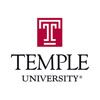
Fox School of Business at Temple University (Temple) has been continuously accredited by AACSB International since 1934. The School is home to the Fox MBA, which has four flexible delivery options. For working professionals seeking the most convenience and flexibility, the Fox Online MBA is 99.9% virtual, with just one residency at the beginning of the program. Forty-eight credit hours are required to graduate, with the flexibility to complete the program in just two years or up to six.
Courses for the Fox Online MBA are delivered online over five weeks. One night a week, from 8 p.m. to 10 p.m. ET, students will engage in live and collaborative web conferencing sessions with peers and faculty. Students have access to 100% online concentrations such as Real Estate, Sport Business, and Travel & Tourism. Other concentration options include Innovation Management, Business Analytics, Strategic Management, Entrepreneurship, and Supply Chain Management, among others.
Temple University offers dual degree options for all MBA students. Online options include the MBA + Specialized MS Degrees in Business Analytics, Human Resource Management, and Innovation Management and Entrepreneurship. Other program features include experiential learning opportunities and access to programs such as weeklong Global Immersions on six continents. Fox Online MBA students have been to Rome, Parma and Milan, Italy; Morocco, North Africa; Budapest, Hungary; Stockholm, Sweden; Mumbai, Bangalore, Delhi, India; London, England; and Santiago, Chile. Past local immersions have taken place in Silicon Valley, California.
For MBA students who prefer not to travel, Temple University recently launched Fox Without Borders Virtual Immersions. Consisting of four-week immersions, the program allows students to experience the culture and business environment of another country without leaving their home. Although the program is noncredit, students can earn a Global Business Professional Certificate. Past virtual immersion destinations include China, Egypt, and Colombia.
The Fox Online MBA at Temple University culminates with an Enterprise Consulting Practicum (Capstone), worth three credits. Temple University business graduates have gone on to work for a variety of employers such as JP Morgan Chase, Aramark , Vanguard, New York Life, TD Bank, Enterprise Holdings, Temple University Hospital, and Defense Logistics Agency.
Temple University is accredited by the Middle States Association of Colleges and Schools (MSA-CESS). Founded in 1884 as a night school, Temple serves 37,365 students, making it the largest university in Philadelphia. Temple University offers more than 500 academic programs across 17 colleges and schools.

The University of Wisconsin System (UW) consists of 13 universities across 26 campuses and a statewide extension. Three UW campuses—UW-Eau Claire, UW-La Crosse, and UW Oshkosh—formed a partnership to create the University of Wisconsin MBA Consortium. This AACSB-accredited program is the only offering among UW’s peer consortial programs to grant the degree from the MBA Consortium Program rather than from one of the partner schools. Consisting of 36 credit hours, the program can be completed 100% online in 2.5-3 years.
The UW MBA Consortium attracts students from 38 states, with an average 12 years of work experience. The program also attracts active military members and Veterans thanks to the programs standing as one of the top Online MBAs in the nation for Veterans.
Other program features include small class sizes, AACSB accreditation, and electives that allow students to focus in one or more specific areas without officially declaring an emphasis/concentration. Elective examples include Managing Technology in Turbulent Times, Introduction to Financial Fraud, Sustainability and Organizational Management, Incorporation of Exchange Rates in Strategic Decision-Making, E-Business Fundamentals for Managers, Corporate Venturing, Intro to the Management and Marketing of Non-Profits, and Mutual Fund Investing.
Other program features include small class sizes, one-on-one support, collaborative projects with classmates and more than 600 corporate partners connected to UW’s School of Business, and access to trained advising experts and career coaches.
The UW MBA Consortium Program culminates with a Capstone course titled “Refining your Plan for Success.” This one credit hour course takes place over seven weeks and consists of a final project, polishing resumes, personal branding, and establishing a professional network.
Around 84% of UW MBA graduates accepted employment offers within three months of graduation from 2017-2021, with 90% accepting offers within three months of graduating in 2018 and 2019. Top recruiting companies include Microsoft, Johnson & Johnson, Deloitte, Amazon, American Family Insurance, Google, P&G, Meta (formerly Facebook), Baird, PepsiCo, Dell, Kimberly-Clark, Cisco, SC Johnson, General Mills, and Intuit.
The University of Wisconsin System (UW) is accredited by The Higher Learning Commission (HLC). Serving 162,980 students, the UW System was established in a 1971 merger combining all of the state's public colleges and universities into a single entity. Established in 1848 when Wisconsin became the 30th state accepted into the Union, University of Wisconsin-Madison is the System’s flagship campus. Today, the UW System one of the largest systems of public higher education in the country. Through statewide extension and outreach programs, the UW System also serves more than one million citizens.
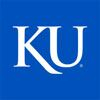
The School of Business at University of Kansas (KU) houses an AACSB-accredited MBA program with Traditional Full-Time and Online options. The Online MBA has zero residency requirements and it may be completed in 2.5 years, with students taking two courses per semester. Forty-two credit hours are required to graduate and three focus areas are available including Management & Leadership, Finance, and Marketing.
The Management & Leadership focus requires the following courses: Managing Internationally, Developing Effective Management and Team Skills, Leadership Philosophy and Practice, and Strategic Organizational Design and Change Management. Finance requires Financial Institutions and Markets, Advanced Topics in Finance, Corporate Finance, and Investments. The Marketing focus requires Digital and Social Media Marketing, Consumer Behavior, Global Marketing, and Integrated Marketing Communications.
All KU School of Business students have the opportunity to participate in the School’s annual Business Career Fair, which attracts more than 100 companies from across the country. KU Business graduates have been recruited by J.P. Morgan Chase, AT&T, and Microsoft, among others. Graduates of the MBA Programs at KU School of Business are frequently promoted to a higher-level position within a year of graduating. Around 30% of alumni who receive a promotion experience a salary increase of 30% and one in four KU MBA alumni saw salary increases of more than 25% within three years of graduation.
University of Kansas is accredited by The Higher Learning Commission (HLC). Founded in 1865, KU opened on September 12, 1866 with one building and 55 students. Today, University of Kansas serves 28,500 students across five campuses the in Lawrence, Overland Park, Kansas City, Wichita, and Salina, Kansas. KU offers more than 400 degrees and certificate programs in 13 academic schools.
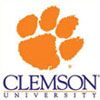
The Wilbur O. and Ann Powers College of Business at Clemson University’s launched an Online MBA Program in 2019 designed for professionals with 2+ years of work experience. Provided on a part-time basis, this AACSB-accredited program provides the opportunity to earn a certificate in growing fields such as Business analytics, CyberSecure Business Practices, Technology Entrepreneurship and Reliability Engineering.
Other program features include access to technology training, including workshops in Google Analytics, Microsoft Excel, and Adobe Creative Suite, career services workshops ranging from mock interviews to resume reviews, and the Innovative Leadership Series, featuring local and national business leaders covering topics related to entrepreneurship, analytics, innovation, technology, and leadership. Students will also attend conferences and seminars such as “MBA Seminar: Managing Your Career,” they will participate in networking events, and have study abroad opportunities in places such as Rome, Paris, and the UK.
Graduates of the Clemson University Online MBA Program enjoy a 95% job placement rate. Some of the top hiring companies for Clemson University graduates include Deloitte, Wells Fargo, Ally Financial, Prisma Health, Lockheed Martin, Accenture, State Farm, Kimley-Horn, Bank of America, Atrium Health, and Medtronic.
Clemson University is accredited by the Southern Association of Colleges and Schools Commission on Colleges (SACSCOC). The school opened as Clemson Agricultural College in 1893 with 446 students. Today, Clemson University serves 26,400 students, making it the second largest university in South Carolina. The school offers more than 200 degree programs and 90+ minor options across 10 colleges and dozens of departments and schools.
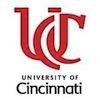
University of Cincinnati (UC) is home to one of the country’s top three Cooperative (Co-op) Programs. Participating students earn more than $75 million a year combined working for Fortune 500 companies such as Apple, Boeing, Disney, Nike, and P&G, among others. Students enrolled in programs through UC’s Carl H. Lindner College of Business have access to the Co-op Program, along with a number of business programs that can be completed entirely online. Among these programs is an AACSB-accredited Online MBA that takes just one year to complete.
Consisting of 35-48 credit hours, the UC Linder Online MBA is research-intensive, with additional opportunities to engage in real-world work experiences. Electives allow students to concentrate in a specific area or earn a certificate. Online certificate/concentration offerings include: Health Care Policy and Regulation, Individual Taxation, Marketing, Health Care Administration, Corporate Taxation, Health Care Finance, and Health Care Operations.
Other UC Linder Online MBA features include optional study abroad experiences in more than 50 countries, the option to take courses in-person at UC’s Uptown Campus, no GMAT requirement for students applying for Fall 2022, Spring 2023, and Summer 2023, and career services, including immersive two-day leadership and team-building experiences and a series of intensive communication workshops.
Graduates of the University of Cincinnati Linder Online MBA Program are often hired for full-time positions within three months of graduation. Top hiring companies include Honda, AstraZeneca, BMO Financial Group, BP, Ernst & Young, Fifth Third Bank, GE Aviation, HSBC, KPMG US, Marathon Petroleum Corporation, Mead Johnson & Company, Morgan Stanley, Nielsen Holdings, PwC Switzerland, Shell Oil Company, Dow Chemical Company, The Goodyear Tire & Rubber Company, Kroger, Procter & Gamble, Toyota, and UTC Aerospace Systems.
The University of Cincinnati is an urban research university that has been accredited by The Higher Learning Commission (HLC) since 1919. Accreditation includes all regional campuses. In addition, as an Ohio Public Institution, every program at UC is approved by the Ohio Department of Higher Education (ODHE). Founded in 1819, UC serves nearly 46,710 students enrolled in more than 400 academic programs across 14 colleges and The Graduate School.
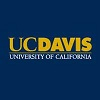
The Online MBA Program at University of California Davis (UC Davis) is the UC System’s first and only Online MBA. Known as the MBA@UCDavis, this AACSB-accredited, STEM-designated program features live online classes, collaborative assignments and projects, and connections to corporate partners across Northern California and UC’s global alumni network.
Housed in the UC Davis Graduate School of Management, the MBA@UCDavis requires 72 units with core courses that provide a foundation in the functional areas of business such as Strategy, Marketing, Finance, Economics, and Accounting. Electives such as Technology Management, Entrepreneurship, and Organizational Behavior allow students to cover broad areas interests or focus in a particular area. Course examples for the program include New and Small Business Ventures, Digital Marketing, Management of Innovation, Markets and the Firm, Data Analysis for Managers, The Individual and Group Dynamics, and Management Information Systems.
MBA@UCDavis students may participate in a series of In-Person Residentials, where they will interact with peers, professors, and business leaders for multiday, in-person experiences in Silicon Valley, Napa Valley, and Davis. Start dates for the Online MBA Program at University of California Davis include January, April, June, and September. The program may be completed in 24-36 months.
Graduates of the MBA@UCDavis Program enjoy an 84% job placement rate within six months after graduation. Graduate School of Management alumni have been hired at Amazon, Tesla, PayPal, Google, LinkedIn, Expedia Group, Zendesk, Meta (formerly Facebook), Uber, BlackRock, Williams Sonoma, AppFolio, Nordstrom, HubSpot, Sumo Logic, Reef technology, Instacart, Sephora, American Eagle Outfitters, Uplift, Lending Club, and Slalom Consulting, among others.
University of California Davis is accredited by The WASC Senior College and University Commission (WSCUC). The school opened in 1908 as the University Farm—the research and science-based instruction extension of UC Berkeley. Today, UC Davis is one of the nation’s top 10 public universities, the largest in area of the 10 campuses in the UC system, and the third largest in student population. Approximately 41,200 UC Davis students pursue more than 200 undergraduate majors, graduate programs, and professional programs in law, business management, medicine, and engineering. Programs at University of California Davis are housed across eleven colleges and schools.
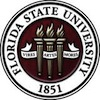
Florida State University College of Business (FSU COB) was founded in 1950. One of the nation’s youngest business schools, COB FSU serves nearly 7,000 students enrolled in 16 academic degrees across five departments and eight research centers & institutes. Around 1,030 students are enrolled in the COB’s master’s degree programs, with hundreds enrolled in the MBA Program. Six formats are available, including two online options—the Part-Time Online MBA and Part-Time Online MBA/Real Estate Specialization.
Both programs require 39 credit hours of study, including 27 credit hours in the core. Course examples include Strategy and Business Policy, Information and Technology Management, The Legal and Ethical Environment of Business, Financial Reporting and Managerial Control, Marketing Strategy in the Global Environment, and Business Conditions Analysis.
Students in the Real Estate Specialization will take Real Estate Valuation, Real Estate Finance, and Real Estate Investment. They will also choose an additional course from the list of MBA options offered each semester. Examples include Marketing, Risk Management and Insurance, Business Analytics, and Management Information Systems.
All FSU COB MBA students may participate in the Global Business Seminar for Graduate Students. This study abroad experience includes travel to Seoul, South Korea to explore major corporations such as LG, Hyundai, Samsung Electronics, and Kia. The program also features several cultural excursions.
Florida State University has a recent overall placement rate of 96%. Some of the top employers for FSU graduates include Deloitte, Lockheed Martin, PepsiCo, Target Corporation, Walt Disney Company, PwC, L3Harris Technologies, Enterprise Holdings, KPMG, Techtronic Industries, ALDI, inc., Florida Department of Health, BDO USA, Publix, Gallagher, the Florida Department of Environmental Protection, and Insight Global.
Florida State University is accredited by the Southern Association of Colleges and Schools, Commission on Colleges (SACSCOC). Founded in 1851, FSU serves nearly 44,000 students enrolled in 276 degree programs at all levels. One of the largest and oldest universities in Florida, FSU houses 16 colleges and schools at campuses across the state.
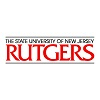
Rutgers University-Camden houses the School of Business. Serving more than 2,000 students, the School has an MBA Program that can be completed 100% online. Around 300 students are enrolled in the program, with an average 11 years of work experience.
Students in the program must complete 42 credit hours of study (14 courses), and a certificate may be added to enhance the degree. Options include Digital Marketing, Strategic Leadership, Forensic Accounting, Investment & Private Wealth Management, Business Analytics, Modern Financial Technology (FinTech), and Accounting Analytics.
Though optional, a major component of the Rutgers-Camden Online MBA is the optional International Business Environment Course and International Residency. This opportunity features a nine-day trip overseas to countries such as Panama, Cuba, South Korea, South Africa, China, Portugal, and Brazil.
During the course of the course and residency, students will have the opportunity to meet with executives from international corporations, immerse in the culture of the country, and visit famous sites.
Graduates of the Rutgers-Camden Online MBA Program have been recruited by top companies, firms, and organizations such as the U.S. Navy, Deutsche Bank Securities, Christie’s, Ernst & Young, Lockheed Martin, Shell USA, Verizon, Aramark, Westinghouse Lighting, Comcast, Easterseals, J.P. Morgan, Prudential, Subaru, U.S. Bancorp, and Morgan Stanley.
Rutgers University is accredited by the Middle States Commission on Higher Education (MSCHE). Founded in 1766 as Queen's College, Rutgers University, The State University of New Jersey, is the eighth oldest university in the U.S. With campuses in Camden, Newark, and New Brunswick serving more than 71,000 students, Rutgers is also the largest university in the New York/New Jersey metropolitan area. The Camden campus was established in 1926 as South Jersey Law School. Serving around 7,230 students, Rutgers-Camden offers nearly 70 degree programs in six colleges and schools.

Colorado State University’s (CSU) College of Business was established in 1960. In the 1970s, the school pioneered MBA distance work through the mail and via VHS tape. The College of Business began offering Online MBA courses in the 1990s. Today, the school offers an MBA Program that may be completed 100% online. Students will attend the program remotely in the evening via Mosaic—CSU’s Online Learning Platform—or anytime of the day or night through lecture capture videos. The Online MBA with Mosaic requires just one two-day, face-to-face orientation. The video option does not require any campus visits.
The Online MBA Program at CSU explores five competencies: Innovation, Financial, Leadership, Data Analytics and Using Business for a Better World. Forty-two credits are required, with 40% dedicated to electives, allowing students to customize the program to meet their specific goals. For additional credentials, students may add a certificate in an areas such as IT Project Management or Marketing Management. CSU Online MBA students also have the opportunity to participate in the international business study trip.
Professional work experience is required to apply for the CSU Online MBA Program and five start dates are available annually. The GMAT and GRE scores are not required for admission and the program can be completed in in as few as 21 months or up to five years.
More than 80% of Colorado State University Online MBA graduates report at least a $10,000 raise after completing the program. Examples of career opportunities for CSU MBA graduates include Operations Director, Business Intelligence and Analytics Director, High-End Management Consultant, Marketing Director, Business Owner, Investment Banker, Chief Executive Officer (CEO), Information Technology Director, VP of Supply Chain, Health Services Manager, and Nonprofit Executive Director.
Colorado State University is accredited by the Higher Learning Commission (HLC). Founded in 1870 as the Colorado Agricultural College, CSU is an RI, land grant university, and part of the three-school Colorado State University System. Colorado State University serves close to 33,000 students enrolled in more than 250 programs in eight colleges and the Graduate School.

Ball State University (Ball State) houses AACSB-accredited Miller College of Business, which has seven graduate certificate programs and an MBA with eight concentrations. Graduate certificates are “stackable,” so upon completion of two areas of business, courses can be applied to the MBA. Graduate certificate examples include Business Analytics, Logistics and Supply Chain Management, Business Essentials, and Health Economics. Certificates may be completed on campus, online or a combination of both. Graduates of the certificate programs who earn a minimum 3.2 GPA are not required to take the GRE or GMAT for admission to the MBA Program.
The Miller MBA has can be completed on campus, 100% online or in hybrid format. There are no residency requirements for the fully Online Miller MBA. Full-time and part-time schedules are available for all options and students can begin any program in the Fall, Spring, or Summer. Courses are led by MBA faculty that hold doctorates in their areas of business. Students with a business degree will complete 30-34 credit hours of study, while individuals without a business degree will complete up to 43. All students must complete 24 credits of core courses and 6-9 credits of MBA electives that explore Finance, Marketing, Healthcare, Business Analytics, and Leadership.
Concentrations for the Miller Online MBA are optional and include Artificial Intelligence, Logistics and Supply Chain Management, Business Analytics, Information Technology Leadership, Construction Management, Health Economics Policy and Administration, Finance, and Healthcare Administration. The General MBA is for students looking for a more general approach to the MBA. This option requires 30 credit hours of study.
Miller Online MBA students will complete coursework for the program through a combination of asynchronous (no specific sign-on time each week) and synchronous (specific time to watch and participate in live webcast lectures and discussions) formats. Students will correspond with instructors and classmates using e-mail, discussion boards, file sharing, chats, and web page posting.
The Miller Online MBA Program takes two years to complete when students enroll in two courses each semester. Graduates of the program have access to more than 300 companies that participate in Ball State University’s Cardinal Job Fair each year.
Ball State University is accredited by the Higher Learning Commission (HLC). Founded in 1918 as the Indiana State Normal School Eastern Division, Ball State serves more than 20,000 students enrolled in 110 majors and 12 preprofessional option in seven colleges. Ball State University also houses 357 student organizations and more than 150 study abroad programs.
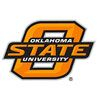
Oklahoma State University’s (OSU) Watson Graduate School of Management is home to Spears School of Business. Since 1958, all academic programs at Spears have been accredited by AACSB International. For students seeking a flexible, part-time MBA Program, Spears offers an Online MBA Program that can be completed in as few as 12 months.
Consisting of 33 credit hours, the program has an optional study abroad “Entrepreneurship” and three concentrations: Business Sustainability, Data Science, Energy Business, Entrepreneurship, Human Resource Management, Information Assurance, Marketing Analytics, and Nonprofit Management. Students may also create a General MBA through electives or add a Graduate Certificate. Twenty options are available 100% online. Business Analytics and Data Science, Business Sustainability, Human Resource Management, Health Analytics, and Nonprofit Management are just a few options.
Graduates of the MBA Programs at Oklahoma State University are prepared for leadership positions in all industries.
Oklahoma State University is accredited by the Higher Learning Commission (HLC). Established in 1890 on Christmas Day, OSU consists of a five-campus system that houses seven academic colleges, a veterinary school, an osteopathic medical school, and several centers and institutes. Serving around 26,650 students enrolled in 200 undergraduate majors and options, 79 master’s programs, and 45 doctoral programs. The programs at OSU are offered in seven academic colleges, a veterinary school, and an osteopathic medical school.
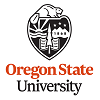
The College of Business at Oregon State University (OSU) has an Online MBA Program with Supply Chain and Logistics Management, Business Analytics, Organizational Leadership, and Marketing options. The program is AACSB accredited and students can complete the accelerated format in 21 months or the traditional format in 30 months. For students seeking a blend of online and on-campus courses, the OSU College of Business has a Hybrid MBA with classes that meet on weekdays from 6-9 p.m.
The online components for both programs are delivered via the OSU Ecampus, and include watching recorded lectures, reading case studies and other materials, and working on group projects. Course examples for the program include Supply Chain and Logistics Management, Corporate Finance, Business Analysis, Leadership and Teams in Organizations, Supply and Sourcing Management, Financial Markets and Institutions, and Service Operations Management.
Graduates of the Oregon State University Online MBA Program are hired at or promoted within companies across the country. Examples include Intel, Columbia, Nike, Target, Boeing, Bill & Melinda Gates Foundation, Deloitte, Adidas, Oracle, KPMG, PwC, and Enterprise.
Oregon State University is accredited by the Northwest Commission on Colleges and Universities (NWCCU). Founded in 1856 as Corvallis Academy, Oregon State University is one of just three land, sea, space and sun grant universities in the U.S. Serving around 34,100 students, OSU 12 experiment stations and campuses in Corvallis, Bend, Portland, Newport, and LaGrande. Students at Oregon State can also earn a degree online through the Ecampus Program. OSU offers more than 200 academic programs in 11 colleges, and over 36 Extension Programs across all 36 Oregon counties.
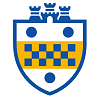
University of Pittsburg (Pitt) houses the Joseph M. Katz Graduate School of Business (Katz School) and the College of Business Administration, collectively known as Pitt Business. Students here have access to global issues workshops, global consulting projects, global research practicums, and short-term study abroad opportunities at WHU – Otto Beisheim School of Management in Germany and Kedge Business School in France, among others.
In the Katz School, students also have access to five MBA options—Signature, Part-Time, Accelerated, Dual MBA/MS, and the Business Analytics MBA. The Part-Time Katz MBA may be completed entirely online. Coursework explores data programming fundamentals, research, and business communications. Students will engage in case competitions and community-based projects. Professional development programming is also a major component of the program.
Katz Online MBA students have the opportunity to complete a Katz Credential in a specific area of business and participate in the Business Disruption Series (BDS). Katz Credential options include Business Analytics, Finance, Marketing, Operations, and Technology Management. The BDS explores what business disruption is and how to promote change. The series allows students to select electives that are relevant to trends and current business issues. Courses such as Augmented Reality (AR) Marketing or Global Private Equity Investing are just a few examples.
The Part-Time Katz MBA can be completed within three years and all students, regardless of location, qualify for in-state tuition.
Around 88% of MBA graduates receive job offers at graduation and 94% have job offers 90 days post-graduation. Pitt Business graduates go on to work in leadership positions at companies and organizations in nearly 90 countries and in all 50 states.
University of Pittsburgh is accredited by the Middle States Commission on Higher Education (MSCHE). Founded in 1787 as Pittsburgh Academy, Pitt is one of the oldest institutions of higher education in the United States. The school is also home to one of the first federally funded centers for international business and research. University of Pittsburgh serves around 28,235 students from 50 states and territories, the District of Columbia, and 42 countries. More than 300 programs are offered at the Pittsburgh campus and regional campuses in Bradford, Greensburg, Johnstown, and Titusville.

Raymond A. Mason School of Business at The College of William & Mary (W&M) has an MBA Program with full-time, part-time, executive, and online options that focus primarily on real-world experiences. Students in the program have access to three centers: Alan B. Miller Entrepreneurship Center, Boehly Center for Excellence in Finance, and the Center for Online Learning. Collectively, the Centers provide resources, career support, work and networking spaces, internship programs, workshops, and more.
For students seeking a flexible MBA, the William & Mary Online MBA requires just one on-campus residency. The school hosts several additional on-campus residencies that students have the option to waive or attend. Held Friday-Sunday, residencies provide the opportunity to explore topics such as marketing, finance, and leadership, while interacting with speakers, peers, and faculty. Students will also engage in team-building activities and networking sessions, and meet W&M Executive partners (EPs) who volunteer their time as mentors to all Mason students.
Other W&M Online MBA features include small class sizes (22 students per course), 12 courses with 7.5 weeks per course, the W&M Connect mobile app to access coursework and more on the go, and no GMA requirement. Students can expect to complete the AACSB-accredited W&M Online MBA in just two years. Graduates are recruited by Fortune Global 100 Companies, 94% of U.S. companies, 92% of start-ups, and more than 90% of the companies in the Consulting, Healthcare, Pharmaceutical, Technology, and Products & Services sectors. Most W&M Online MBA alumni enjoy salary increases and promotions within three years of graduation. Some of the most notable employers of W&M Online MBA graduates include BMO Harris, Target, Pepsi, Microsoft, Boeing, Amazon, BB&T, and Mercer.
William & Mary (W&M) is accredited by the Southern Association of Colleges and Schools Commission on Colleges (SACSCOC). Established in 1693, W&M is the second oldest institution of higher learning in the U.S. The school serves more than 8,900 students enrolled in more than 250 degree programs, majors, minors, and tracks across three campuses in Virginia and D.C., four schools, and the W&M Virginia Institute of Marine Science (VIMS).
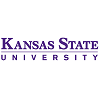
Kansas State University’s (K-State) College of Business Administration has a Professional MBA (PMBA) Program that may be completed online. The program has just one required two-day on-campus orientation that includes team building, networking, and professional development experiences. An optional faculty-led international trip is part of the program as well as the Professional Development and Learning Seminar.
The Online PMBA is AACSB accredited and includes 36 credit hours or as few as 30 depending on previous undergraduate coursework. The program consists of eight-week classes, allowing students to focus on one course at a time. Course examples include Information Technology Strategy and Application, Managing the Triple Bottom Line Business, Marketing Concepts and Research, Operations and Supply Chain Management, and Business Strategy.
The K-State Online PMBA culminates with the Business Capstone course, which allows students to apply what they’ve learned to a final project. Nearly all Kansas State University graduates find success within six months of graduation. Top corporate employers include Amazon, Koch Industries, Textron, Honeywell, Cargill, Shamrock Trading Corp., Burns and McDonnell, Kiewit, Gramin, and Cerner Corporation.
Kansas State University is accredited by The Higher Learning Commission (HLC). Founded in 1863 as Kansas State Agricultural College—the nation's first operational land-grant university, and the only one in Kansas—K-State serves close to 21,800 students enrolled in more than 250 undergraduate majors and options and 165+ graduate degrees and certificates. Programs at Kansas State University are offered across four campuses (Manhattan, Saline, Olathe, and Global) and in nine colleges and The Graduate School.
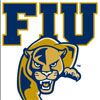
The Alvah H. Chapman Jr. Graduate School of Business at Florida International University (FIU) offers a fully Online MBA designed for busy, working professionals. Known as the Professional MBA (PMBA) Online, the program has three different pacing tracks, allowing students to choose a pace that fits their schedule. Three Professional Development Seminars (PDS) are required in the first 8-week term of the program and include Professional Development I – Presentation Skills Seminar, Professional Development II – Collaboration in the Virtual Age, and Professional Development III - Lean Six Sigma (LSS) Yellow Belt, Personal Branding & Career Readiness, or Data Visualization.
A Healthcare Option consisting of 42 credit hours of study (which may be completed in as few as 18 months) is available as well as 10 in-demand Specializations consisting of two courses out of the 14 total for the program. Specialization examples include Strategic Negotiations, International Business, Sports Management, Business Data Analytics, Entrepreneurship and Innovation, and Marketing Channel Strategy. Five term starts are offered and students have the option to attend the two-day MBA residency in Miami featuring expert speakers on current topics in business, team-building workshops, case-method analysis, networking events, and an etiquette luncheon. The Residency is included in tuition.
For seamless program delivery, the FIU Online PMBA utilizes discussion boards, email, and chat, academic coaches, and online e-advising and e-tutoring. This AACSB-accredited program requires 42 credit hours of study to graduate. Depending on whether the student attends full- or part-time, prerequisite requirements, and other factors, the FIU Online PMBA may be completed in as few as 18 months. Some of the top employers for graduates of the Florida International Online PMBA include Target and PwC.
Florida International University is accredited by the Southern Association of Colleges and Schools Commission on Colleges (SACSCOC). Founded in 1965, FIU is Miami’s first and only four-year, public research university. Serving more than 56,000 students, Florida International University is also one of the top 10 largest universities in the nation. FIU offers more than 190 degree options across 11 colleges and schools.
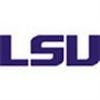
Louisiana State University (LSU) houses E.J. Ourso College of Business—home to the Flores Online MBA. Designed for professionals with five years of work experience this AACSB-accredited program has three in-demand specializations options including Data Analytics, Healthcare Management, and Emerging Information Technologies for Business. The curriculum for the Flores Online MBA is project-based and students engage with peers and faculty through LSU’s Distance Learning Platform.
With six start dates annually, the Flores Online MBA consist of 36 hours, decreased from 42 hours. Course examples include Strategic Management, Operations Management, Information Systems, Managerial Statistics, Leadership, Business Law, Cost Accounting, and Marketing Management. Students in the program may have opportunities to engage with LSU partners such as Amazon, Guild, Raising Cane’s Chicken Fingers, Penhall Company, the National Electrical Contractors Association (NECA), Turner Industries, Quality Matters (QM), and the Association for Talent Development (ATD).
There are no residency requirements for the program, so the Flores Online MBA is truly 100% online. Students may complete the program in as few as 18 months.
Louisiana State University is accredited by the Southern Association of Colleges and Schools Commission on Colleges (SACSCOC). The three areas of concentration in the School of Art are accredited by the National Association of Schools of Art and Design (NASAD). Louisiana State University was founded in 1860 as the Louisiana State Seminary of Learning and Military Academy. The flagship institution of the Louisiana State University System, LSU serves nearly 36,000 students enrolled in more than 330 programs across 18 colleges, schools, and centers, and LSU Online.
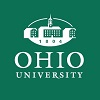
The College of Business at Ohio University has a no GMAT or GRE required MBA Program that can be completed 100% online. Graduate Certificates are available online as well and can help students develop an area of expertise to advance in a current position or move into a new one. Select coursework from a Graduate Certificate can be applied to the Online MBA. Certificate options include Business Analytics and Advanced Business Analytics, Business Venturing & Entrepreneurship, Executive Management for Healthcare Professionals, Finance, Strategic Sales and Sales Leadership, Operations and Supply Chain Management, Human Resources management, and Management and Leadership.
Finance, Business Analytics, Operations and Supply Chain Management, Strategic Sales and Sales Leadership, and Business Venturing & Entrepreneurship are also available as Concentrations. The Online MBA Program has nine Concentration options total. Other options include Healthcare, Executive Management, Accounting, and Project Management.
All MBA students at Ohio University have the opportunity to work with the school’s Graduate Career Acceleration Team (GradCAT). They can access career coaches, branding experts, and the career concierge as well as job-search resources that include webinars, personal assessments, and new job openings. Online resources can be accessed 24/7 and live coaching takes place via video conference or phone. Coaches, branding experts, and the career concierge are available for four months, and annual career coaching sessions, unlimited access to job-search technology platform, or networking opportunities are accessible for life.
The Online MBA Program at Ohio University may be completed in two years, full-time. Graduates of the program go on to receive promotions and salary increases in their current careers or to establish successful careers in industries such as Healthcare, Manufacturing, Information Technology, Government, Retail Management, E-commerce, Automotive, and Public Administration.
Ohio University is accredited by The Higher Learning Commission (HLC). Established in 1804 as the state’s first university, this public research institution serves 28,000 students from across the state and online. More than 250 academic programs are available at Ohio University. Programs are housed across more than 25 colleges and schools.

The School of Business at Portland State University (PSU) and the Oregon Health & Science University (OHSU) - Division of Management have teamed up to provide an MBA Program that can be completed in a hybrid course format: 80% online, 20% in person. The program is AACSB accredited and focuses on Healthcare. Other areas for the program include Leadership and Management, Finance, Marketing, and Strategy, Operations and Quality Management, Understanding the Industry, and Capstone and Application Projects.
The PSU Healthcare MBA follows a cohort structure and includes courses such as Pioneering Innovation in Healthcare, Ethics in Healthcare Organizations, Managerial Decision Making, Healthcare Economics, Organization, Financing, and History of Healthcare Delivery in the US, Legislation and Regulation of Healthcare, Healthcare Program Management, Marketing, Research, and Strategy in Healthcare. Students can expect to complete the 63 credit hour PSU Healthcare MBA 21 months.
Graduates of the MBA Programs at Portland State University are often hired for positions in all industries within three months of graduation. Many are promoted and/or receive salary increases within four months of graduation. PSU MBA graduates have been recruited by companies, organizations, and agencies such as Adidas, Amazon, Cisco, Google, Intel, Kaiser Permanente, Lockheed Martin, Nike, Opendoor, Opus Creative, SeQuential, SurveyMonkey, Technology Association of Oregon, Thai Government IRS, United Nations, Universal Beijing Resort, and Vacasa.
Portland State University is accredited by the Northwest Commission on Colleges and Universities (NWCCU). The school opened in the summer of 1946 with 220 students. Today, PSU serves nearly 24,000 students, with more than 2,700 students in the College of Arts, making it the largest art school in the Pacific Northwest. The College of Arts houses the Schools of Art + Design, Architecture, Film, and Music & Theater. Portland State University offers more than 200 degree programs in nine colleges and schools.

The Online MBA Program at University of Massachusetts Lowell (UMass Lowell or UML) is offered through the AACSB-accredited Robert J. Manning School of Business. The 42 credit hour has nine optional concentrations including Managerial Leadership, Entrepreneurship, Healthcare, International Business, Accounting, Information Technology, Marketing, Business Analytics, and Finance. A General MBA is available for students seeking a broader degree.
Students in both options will complete 12 credit hours of prerequisites (six courses – two credits each – eight weeks), the required advanced core 21 credit hours (seven courses at three credit hours each), and nine credit hours of electives (three courses at three credit hours each). Course examples include Global Enterprise and Competition, Strategy Formulation and Implementation, Corporate Finance, Managing Organizational Change, Customers and Markets, and Accounting Information for Management Decisions.
The Manning Online MBA Program at University of Massachusetts Lowell can be completed in as few as 12 months, and a GMAT waiver is available. Graduates are prepared for a wide variety leadership positions in commercial, industrial, and nonprofit settings. Alumni of the MBA Program work at companies such as Microsoft, iRobot, State Street Corporation, and HP. Graduates have also launched their own companies, including Venture Enterprises.
University of Massachusetts Lowell (UMass Lowell or UML) is accredited by the New England Commission of Higher Education (NECHE). Founded in 1894, UML is a top 200 national public research university and one of the largest employers in the region. Serving more than 18,000 students, UMass Lowell offers over 135 undergraduate majors, 50 master’s degree programs, 28 doctoral degrees, and 31 certificates in five colleges.
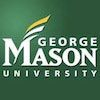
George Mason University’s (GMU) School of Business has an MBA Program that may be completed entirely online. Program features include the opportunity to earn a Graduate Certificate in Business Analytics (BA) and participation in the Global Residency program, which consists of a week abroad in places such as Korea, London, Spain, Australia, Sweden, and Germany.
The GMU Online MBA covers four areas of study: Analytical Decision Making, Collaborative Communication and Leadership, Contemporary Issues in Business, and Knowledge of Functional Business Disciplines. Courses for the GMU Online MBA are offered in a flexible, part-time asynchronous format. Students must complete 48 credit hours, including 30 credits of core courses, three credits of Global coursework, and 15 credits of elective courses.
Course examples for the program include International Business Strategy, Fraud Examination, People Analytics, Strategic Management, Global Business Perspectives, Management of Information Technology, Financial Reporting and Decision Making, Turning Ideas into Successful Companies, Governance and Ethics, and Real Estate Analysis and Valuation.
George Mason University graduates enjoy an 80% employment rate within six months of graduation. Mason Online MBA graduates go on to successful careers such as Project Manager, Senior Consultant, Analyst, Negotiator, Senior Analyst, Contract Specialist, Director, Logistics Analyst, Senior Financial Analyst, and Contracting Officer, among others.
George Mason University is accredited by the Southern Association of Colleges and Schools Commission on Colleges (SACSCOC). Founded in 1949 as a branch of the University of Virginia, GMU enrolls more than 39,000 students from all 50 states and 130 countries, making it the largest public university in the Commonwealth of Virginia. George Mason University offers 200 degree programs in 10 colleges and schools.
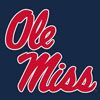
The School of Business Administration at University of Mississippi (UM or Ole Miss) has an AACSB-accredited MBA Program with coursework that can be complete entirely online. Consisting of 36 credit hours, the Ole Miss Online MBA is designed to help students enhance their interpersonal, communication, strategic thinking, leadership, and entrepreneurial skills.
The curriculum for the online program is taught by the same faculty who teach on-campus. Course examples for the program include Management of Technology and Innovation, Leadership and Ethics, Business Planning and Entrepreneurship, Strategic Marketing Management, and Predictive Modeling and Analytics.
Students may start the Ole Miss Online MBA Program at any term and the program can be completed in just two years by taking two courses per term. Students can also complete the program at a slower pace by taking one course per term.
More than 80% of School of Business Administration graduates find employment after graduation. School of Business Administration alumni work on Wall Street, for NFL teams, and for companies such as Adobe, and Amazon, among others.
University of Mississippi is accredited by the Southern Association of Colleges and Schools Commission on Colleges (SACSCOC). Chartered on February 24, 1844, UM is Mississippi's flagship university. The school opened its doors in 1848 to just 80 students. Today, University of Mississippi serves 18,800 students at the Oxford campus and regional campuses in Grenada, Southaven, and Tupelo. UM offers more than 200 programs in the College of Liberal Arts, nine schools, and the Sally McDonnell Barksdale Honors College.
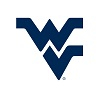
The John Chambers College of Business and Economics at West Virginia University (WVU) has an Online Hybrid MBA Program (OHMBA) that provides a Virtual Orientation, where students can introduce themselves to peers, faculty, and teammates, and two three-day residencies that allow students to work on projects and network. To be admitted to the Chambers OHMBA Program, students must have a bachelor’s degree from an accredited institution, and two years of professional work experience.
A typical schedule for this AACSB-accredited program consists of eight credit hours each fall and spring semester and 4-7 credit hours each summer semester. Many courses in the fall and spring semesters are a half semester in length, which results in students taking just 1-2 courses at a time. All coursework for this 37 credit hour program can be complete online, and qualified OHMBA students can add a certificate such as Business Data Analytics, Forensic Accounting and Fraud Examination, and Business Cybersecurity Management.
The Chambers OHMBA also offers an optional Integrated Marketing Communications Emphasis (AOE) consisting of four courses (12 credits): Audience Insight, Emerging Media and the Market, Introduction to Integrated Marketing Communications, and Brand Equity Management.
Other WVU Chambers OHMBA Program features include access to academic life coaches, career services at the Center for Career Development (CCD), online tutoring, technology services, and virtual WVU library services.
Graduates of the WVU Chambers OHMBA are prepared for a variety of careers. Examples include Controller, Administrative Service Manager, Human Resource Specialist, Business Manager, Real Estate Manager, Business Continuity Planner, Financial Manager, and Business Intelligence Manager.
West Virginia University is accredited by The Higher Learning Commission (HLC). This public, land-grant institution was founded in 1867 and Morgantown is the flagship campus of the West Virginia University System. The WVU Morgantown campus serves nearly 25,500 students enrolled in 355 majors across 13 colleges and schools.
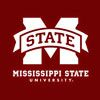
The College of Business at Mississippi State University (MSU) is recognized as the oldest business school in the south. This AACSB-accredited College has an Online MBA Program that consists of 30-33 credit hours. Students in the General Management MBA will complete 30 credit hours and students in the MBA with Project Management Concentration will complete 33 credit hours. Courses for both programs emphasize Management, Accounting, Supply Chain & Operations Management, Business Decision Analysis, Strategic Management in a Competitive Environment, Finance, and Marketing.
MSU Online MBA students can enroll in Fall, Spring, or Summer. The program typically takes two years to complete, but students who have completed all undergraduate prerequisites can finish the program in as few as 18 months. Prerequisite courses are also available online.
Graduates of the Online MBA Program at Mississippi State University are prepared for careers as Chief Executives, Operations Managers, Sales Managers, Administrative Services Managers, Financial Managers, Purchasing Managers, Business Intelligence Managers, Regulatory Affairs Managers, Compliance Managers, Loss Prevention Managers, Business Managers, Management Analysts, and Business Continuity Planners, among others.
Mississippi State University is accredited by the Southern Association of Colleges and Schools Commission on Colleges (SACSCOC). Founded in 1878 as the Agricultural and Mechanical College of the State of Mississippi, MSU server more than 23,000 students enrolled in more than 175 programs leading to a bachelor’s, master’s or doctoral degree. Programs at Mississippi State University are housed in eight academic colleges including Agriculture and Life Sciences; Architecture, Art, and Design; Arts and Sciences; Business; Education; Bagley Engineering; Forest Resources; and Veterinary Medicine.
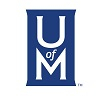
Fogelman College of Business and Economics (FCBE) at University of Memphis (U of M) has an MBA Program designed for working professionals with demanding schedules. This 36 credit hour, AACSB-accredited program is delivered 100% online in an asynchronous format, which allows students to learn from anywhere at any time. There are no required online meetings or campus visits, and the program can be completed in two years up to five or more.
Course examples for the FCBE Online MBA include Global Strategic Marketing, Business Analytics for Managers, Leadership and Negotiation, Global Financial Management, Information Systems in the Global Enterprise, and Supply Chain Operations Management. The Global Strategic Management Capstone will be completed in the last semester of the program.
Other FCBE Online MBA features include resume building resources, networking events, career training resources, and access to the FCBE Professional Development Center (PDC), which offers resources such as the Fogelman Internship and Career Network (FIN).
Graduates of the FCBE Online MBA Program at University of Memphis have been recruited by major companies and organizations such as Deloitte, Verizon, FedEx, Walmart Pharmacy, St. Jude, the United States Armed Forces, Toshiba, Nike, McDonald’s Corporation, GE Transportation, Hilton Worldwide, Methodist Hospitals, First Credit union, Terminix, AutoZone, and Wright Medical Technology.
University of Memphis is accredited by the Southern Association of Colleges and Schools Commission on Colleges (SACSCOC). This public research university was established in 1912 as West Tennessee State Normal School. Serving close to 21,625 students, U of M offers more than 375 areas of study, subjects, and disciplines leading to degrees and certificates at all levels. Programs at U of M are housed in 13 colleges and schools.
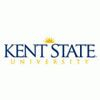
Kent State University (KSU or Kent State) is home to the AACSB-accredited Ambassador Crawford College of Business and Entrepreneurship, which has several flexible paths to earn an MBA. The Stackable Certificate Pathway to the Online MBA Our allows students to enroll in the Financial Management or the Leadership and Management Certificate Program. These stand-alone certificates consist of five two-credit courses and classes for each are delivered 100% online. Students can complete one certificate, stack a second certificate, then complete Capstone requirements to graduate with an MBA.
Another pathway is the Fully Online Kent State MBA, which serves students in Cleveland, Akron, and Youngstown, and professionals attending virtually across Ohio and the U.S. Examples of areas covered in the program include ethical and sustainable management, communication, digital technology, critical thinking, and teamwork.
The Kent State Online MBA blends classroom instruction, experiential learning, and optional education abroad experiences in places such as Prague, Czech Republic; Florence, Italy; and Geneva Switzerland. Courses for the program are case-based and delivered in eight-week modules. Three optional concentrations are available including Business Analytics, International Business Analytics and Human Resource Management.
Of the 37 credit hours required to complete the KSU Online MBA, 24 hours are core courses, nine are electives, and the Capstone is three credits. A one-credit Professional Development course is part of the program and the optional study abroad course can fulfill three out of the nine elective credits. Course examples include Global Conditions and Macroeconomics Policy, Leadership and Managerial Assessment, Analytics for Decision Making, Global Technology Strategy, Operations, Service and Supply Chain Management, Financial Accounting for Decision Making, Managerial Economics, Law and Ethics, and marketing Management.
Other Online MBA Program benefits include access to a career coach and other career services, the option to enroll year-round in the Fall, Spring, and Summer semesters, and no business degree or business background requirements. The Online MBA Program at Kent State University can be completed in as few as 12 months.
Top employers for graduates of the Ambassador Crawford College of Business and Entrepreneurship include EY, Sherwin Williams, Grant Thornton, Rocket Mortgage (formerly Quicken Loans), Progressive Insurance, KeyBank, FirstEnergy, Tom James Company, Qualtrics, and Fastenal.
Kent State University is accredited by The Higher Learning Commission (HLC). Established in 1910 as a teacher-training school, KSU consists of an eight-campus system that serves around 35,000 students from across the U.S. and 116 countries. Kent State University offers more than 300 programs in more than 40 colleges, departments, and schools.
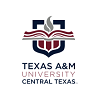
The Online MBA at Texas A&M-Central Texas (TAMUCT) is a 30-36 credit hour program that does not require the GRE/GMAT for admission. Students may earn a nine-credit Micro-Credential in Data Analytics and/or declare an Emphasis in Information Systems, Healthcare Administration, Management, or Human Resource Management.
Students in all areas will complete courses such as Financial Management, Responsibilities of Ethical Leadership, Organizational Behavior, Managing Information Systems, and Data Analytics and Management. Depending on whether students add Data Analytics Micro-Credential and/or Emphasis, the program can be completed in as few as 16 months or up to two years or more finish.
The TAMUCT Online MBA is accredited by the Accreditation Council for Business Schools and Programs (ACBSP) and is an AACSB Business Education Alliance Member.
Texas A&M University-Central Texas is accredited by the Southern Association of Colleges and Schools Commission on Colleges (SACSCOC). Established September 1, 1999 as Tarleton State University-Central Texas, TAMUCT became a stand-alone university on May 27, 2009, and one of 11 universities within the A&M System. Serving more than 2,400 students, Texas A&M University-Central Texas offers more than 30 undergraduate degree programs and more than 20 graduate degree programs in the College of Arts and Sciences, College of Business Administration, and the College of Education and Human Development.
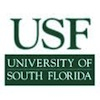
University of South Florida’s (USF) Muma College of Business has an Online MBA Program with just one residency requirement, optional in-person Immersion Courses, and short-term study abroad experiences in locations around the world. The required residency provides the opportunity to network with peers, meet faculty, and interact with industry leaders. Online workshops, webinars, and networking events are also part of the program.
Other program features include asynchronous courses, teambuilding projects, weekly discussions, collaboration sessions, and five concentrations including Finance, Data Analytics, Cybersecurity, Healthcare Analytics, and Compliance, Risk and Anti-Money Laundering.
Most Muma Online MBA students work full-time and complete the program in two to three years, part-time. Full-time students can complete the program in one year. Recent USF Muma MBA graduates have been recruited by a variety of international companies and some have secured positions at a number of top Florida corporations.
University of South Florida is accredited by the Southern Association of Colleges and Schools Commission on Colleges (SACSCOC). Founded in 1956, USF serves more than 50,000 students across three campuses in Tampa, St. Petersburg, and Sarasota-Manatee. Students at University of South Florida choose from 180 undergraduate majors and degree programs at the graduate, specialist, and doctoral levels. Programs are housed in 14 colleges.
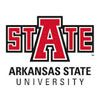
Neil Griffin College of Business at Arkansas State University (Arkansas State or A-State) houses the Department of Management and Marketing, home to the MBA Program. Two delivery options are available: Traditional On-Campus and 100% Online. As part of Neil Griffin College of Business, both options are AACSB accredited.
The A-State Online MBA has Concentrations in Marketing, Agricultural Business, Supply Chain Management, and Financial Planning & Analysis. Students in all areas will take eight core courses for a total of 24 credit hours and three business electives for a total of nine credit hours. Core course examples include Strategic Management, Managerial Economics, Business Analytics, Fundamentals of Project Management, and Corporate Financial Management.
Electives can be selected from any concentration elective courses. Examples include Consumer Behavior and Food Marketing, International Financial Markets, Business Cycles and Forecasting, Data Mining, Global Supply Chain Management, Leadership Development, Service Marketing Strategy, Sourcing and Procurement, and Logistics Operations.
The A-State Online MBA can be completed in as few as 12 months up to two years. Graduates of the program are prepared for advancement into roles such as Director, General Manager, and Director of Operations, among others.
Arkansas State University is accredited by The Higher Learning Commission (HLC). Founded in 1909, A-State serves 14,085 students, including close to 900 international students. Arkansas State University offers more than 200 degrees, certificates, and minor programs across seven colleges representing all major academic disciplines.

The MBA Program at University of Tennessee Chattanooga (UTC) is part of Gary W. Rollins College of Business, which serves nearly 2,500 students enrolled in close to 20 degree programs and minors. Housing five departments including Accounting, Business Analytics, Finance and Economics, Management, and Marketing and Entrepreneurship, Rollins College of Business offers the area's only AACSB accredited business graduate degree programs.
The UTC Rollins MBA Program may be completed entirely online (no need to set foot on campus) or in a flexible hybrid format that combines in-person and online classes. The program features experiential learning opportunities, cooperative education assignments, and three career-focused concentrations including Business Analytics, Finance, and Healthcare Administration. Students in the program may also enroll in the General Track and customize a focus area through electives.
For the 100% Rollins Online MBA, interaction with instructors and colleagues takes place virtually via Zoom, email, online chats, and phone calls. Hybrid students will choose from a variety of in-person and online asynchronous courses. Both options require 12 courses (36 credit hours), including eight core courses, three elective courses or three concentration courses, and one capstone course. Students in both programs have access to support services such as graduate career services and coaching, counseling services, and the UTC library.
Part-time and full-time study options are available for both programs with four start dates: Fall, Spring, Summer 1, and Summer 2. Full-time Online MBA students can complete the program in as little as 18 months, while part-time students can graduate in as little as 24 months.
Nearly 90% of UTC Rollins College of Business graduates find full-time employment following graduation. Close to 85% of these students are employed in positions related to their degree.
University of Tennessee at Chattanooga is accredited by the Southern Association of Colleges and Schools Commission on Colleges (SACSCOC). Founded in 1886, UTC serves more than 10,000 students enrolled in 97 undergraduate programs, 88 graduate programs, and 50 minors in six colleges and schools.

The Paul and Virginia College of Business at West Texas A&M University (WTAMU) has an AACSB-accredited MBA Program that can be completed entirely online. Students may choose core courses to suit their goals and one of five specializations to enhance the degree. Specializations are optional and consist of nine credit hours. Options include Procurement Management, Computer Information Systems, Management, Marketing, and Healthcare Management.
The WTAMU Online MBA is delivered in an asynchronous format and students are welcome to complete any course on campus. The program culminates with a Capstone Course. Students may choose between MBA Portfolio (1 hour) and Research Methods in Business and Economics (3 hours).
Students can take up to six years to complete the WTAMU Online MBA, but most finish within two years. Graduates have been recruited by hundreds of local, national, and global companies and organizations. Examples include FedEx, Fox Network Center, PNC Bank, EY, Pepsi, the U.S. Air Force, Verizon Wireless, Pacific Design Technologies, USAA, Seton Healthcare Family, First Capital Bank, State of Vermont Department of Health, the Kentucky Horseracing Commission, Southwest Media Group, the State of New Jersey, Scientific Games, and Dwyer Group.
West Texas A&M University (WTAMU) is accredited by the Southern Association of Colleges and Schools Commission on Colleges (SACSCOC). Founded in 1910, WTAMU serves more than 10,000 students enrolled in 60 undergraduate programs, 38 master’s degree programs, and two doctoral degrees across six colleges and The Graduate School.
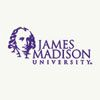
The College of Business (CoB) at James Madison University (JMU) has three MBA Programs that may be completed in the hybrid format. This means, students will complete coursework online and attend a number of 10-12 day in-person residencies throughout the program. MBA options include the Executive Leadership MBA, Information Security MBA, and the Innovation MBA.
All CoB MBA Programs feature three concentrations (Innovation, Executive Leadership, and Information Security), networking opportunities, professional workshops, and the opportunity participate in an international 10-12 day residency. Held in March, previous locations include Vietnam, Estonia, Denmark, Germany, and China, with visits to companies such as Maersk, Remi Martin, and Hyundai.
The Executive Leadership and Information Security MBAs take 28 months to complete and the Innovation MBA takes 21 months to complete. All James Madison University MBA Programs are AACSB accredited.
Around 97% of graduates of the College of Business at James Madison University report being employed, continuing their education, or engaged in other career-related ventures within six months of graduation. Recent employers of JMU CoB graduates include Amazon, Nestle, EY, Lockheed Martin, Deloitte, Apple, Northrop Gruman, Target, Booz Allen Hamilton, GEICO, Oracle, IBM, Morgan Stanley, Chevron, Fannie Mae, Freddie Mac, Pepsi Co., Grant Thornton, TEKSystem, Johnson & Johnson, State Farm Insurance, and Kohls.
James Madison University is accredited by the Southern Association of Colleges and Schools Commission on Colleges (SACSCOC). The school was established in 1908 as the State Normal and Industrial School for Women at Harrisonburg. Today, JMU serves 21,500 students from all backgrounds. Programs offered include 76 undergraduate options, 53 master’s degrees, two education specialist programs, and eight doctoral degrees. Programs at James Madison University are offered in ten academic departments and schools.
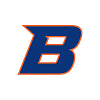
The MBA Program at Boise State University (Boise State) is the only AACSB-accredited MBA in the Treasure Valley. Housed in the Boise State College of Business and Economics (Boise State COBE), the program has five options, including an Online MBA (OMBA). Consisting of 49 credit hours, the OMBA can be completed in as few as 12 months (full-time) or two years. To enter the program, students must have 2+ of management experience, a minimum score of 500 on the GMAT or 147/148 on the GRE OR qualify for a waiver, and a bachelor’s degree in any field from a regionally accredited institution.
GMAT/GRE waivers are available for students with a master’s or doctoral degree and a 3.00 GPA, professionals with five years of significant management experience and a 2.75 GPA in their undergraduate career, or three years of significant management experience with a 3.00 GPA in their undergraduate career.
The Boise State COBE OMBA has four specializations: Management, Marketing Leadership, Construction Management, and Healthcare Leadership. Students in all specializations will take required courses such as Global Economics: Policy and Trade, Design Thinking and Strategic Management, Corporate Finance, People and Organizations, and Legal Issues in Business. The Boise State University Online MBA Program culminates with the Integrated Capstone course worth four credits.
Graduates of the Boise State COBE OMBA are prepared for advancement opportunities in their current career or leadership roles such as Director of Marketing, Contracts Manager, General Manager, Chief Marketing Officer, Senior Project Manager, Quality Assurance Director, Director of Strategy and Business Development, Medical and Health Services Manager, Chief Operating Officer (COO), Communications Director, and Business Owner.
Boise State University is accredited by the Northwest Commission on Colleges and Universities (NWCCU). Founded in 1932 by the Episcopal Church, the school began as Boise Junior College. Today, Boise State University is Idaho’s largest graduate school, providing over 100 graduate programs, 14 doctoral programs, and 200 programs of study to around 24,100 students.

